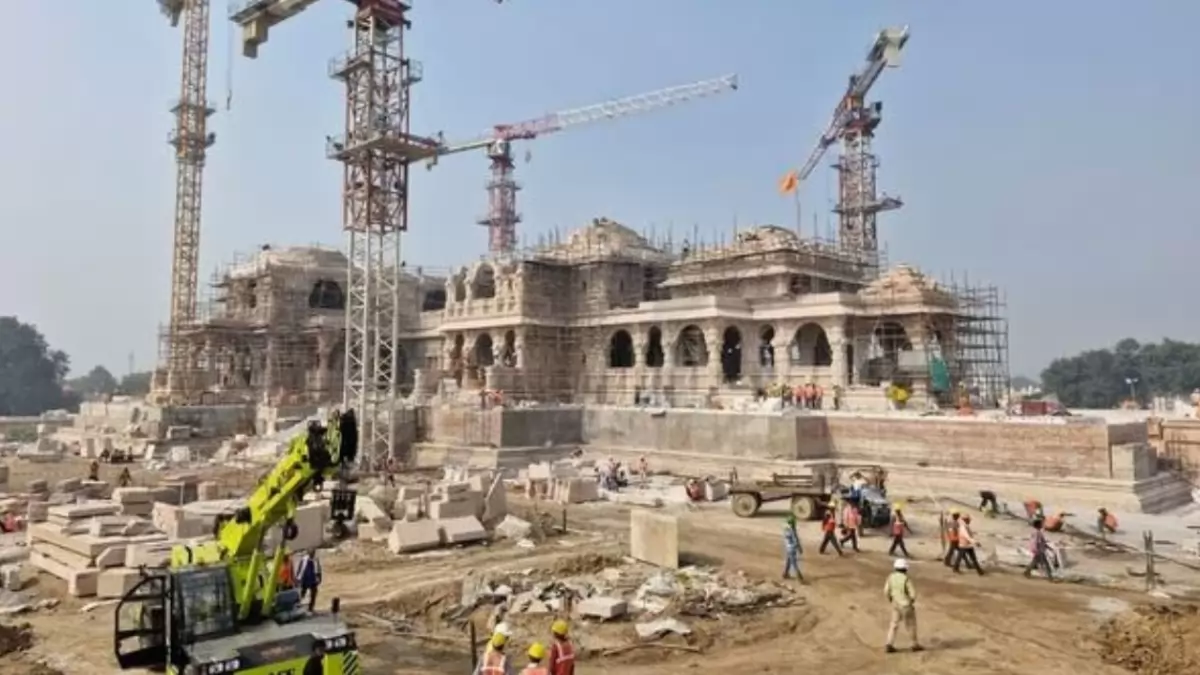
X
In a momentous declaration, Vishwa Hindu Parishad (VHP) leader Alok Kumar has revealed an ambitious initiative to extend invitations to 10 crore households across 56 countries for the 'Pran Pratistha' consecration ceremony of the Ayodhya Ram Mandir.
"We will visit 10 crore homes globally across 56 nations and invite people to gather at their nearby temples on January 22, 2024, and participate in 'aarti' as they witness this historic event," said VHP International Working President Alok Kumar.
Pran Pratistha is a Hindu ritual involving the installation and opening of the deity's eyes when establishing a new temple. The VHP plan involves offering consecrated rice from the Ram Mandir for collective viewing and participation worldwide.
Alok Kumar emphasised the initiative's objective is not just individual observation but rather a symbolic global embracing of responsibilities by the Hindu community.
He was joined by Duta President Ajay Bhagi Ji and DUSU President Tushar Dedha Ji in underscoring the event's significance beyond India's borders.
"When people unite at local temples worldwide, standing together and taking part in 'aarti', it will showcase to the entire planet that Hindus are ready to uphold duties towards the global Hindu fraternity," Alok Kumar added.
The VHP leader also voiced concerns over disrespectful statements on Hindu deities by some members of the political sphere. He said the patience of the Hindu community is being tested by such remarks.
Preparations are in full swing for the grand opening on January 22. The Shri Ram Janmabhoomi Teerth Kshetra Trust has decided to ceremonially enthrone Ram Lalla at the sanctum sanctorum at noon, with rituals commencing a week prior.
Prime Minister Narendra Modi will preside over the Pran Pratishtha ceremony, having earlier announced an 11-day ‘anusthan’ special ritual ahead of the idol installation.
The lavish temple has been constructed at a reported cost exceeding ₹1,000 crore, after a decades-long controversy over the disputed Babri Masjid site. The Supreme Court verdict in 2019 paved the way for construction on the land considered the birthplace of Lord Ram.
For devotees, the consecration ceremony marks the symbolic return of their revered deity to his rightful home. The extravagant rituals reflect Hindu cultural pride and religious identity reclaimed.
However, some civil society members argue the majestic temple distracts from pressing governance priorities. For India's minorities, it remains a sensitive reminder of historical divisions.
However, the temple trustees aim to project Ayodhya's grand Ram Mandir as a globally-unifying Hindu emblem rather than a divisive emblem. The ambitious outreach seeks to rally diverse diaspora communities towards a common spiritual cause.
If successful, the VHP's PR campaign may help soften perceptions domestically and internationally about the temple's legacy. But bridging dissenting voices through such ceremonial spectacles seems challenging.
For now, the Hindu right is focused on cementing Ayodhya's Ram Temple in the public imagination as a civilisational beacon beyond just symbolising their ideological triumph. The mega opening offers an opportunity to mobilise Hindus globally by stirring religious fervour.





Copyright © 2026 Top Indian News
